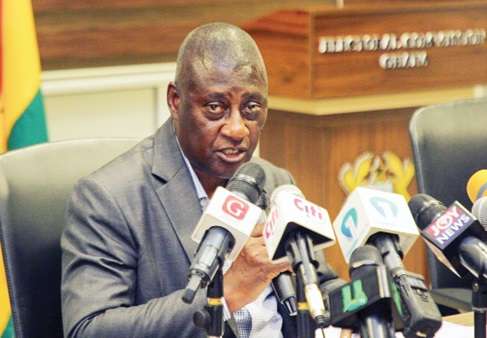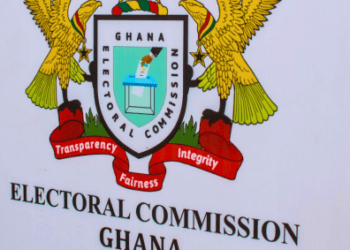In a move to uphold transparency and build public trust ahead of the highly anticipated 2024 General Election, the Electoral Commission of Ghana (EC) has released detailed ballot statistics for both the Presidential and Parliamentary elections.
These figures according to the press release signed by Mr Samuel Tettey, Deputy Chairman of Operations at the EC commission are set to guide the printing of ballots, ensuring that the electoral process is seamless and efficient.
“The Electoral Commission hereby publishes the ballot statistics to guide the printing of the Presidential and Parliamentary election ballots ahead of the 2024 General Election.
“In arriving at the ballot statistics, the Commission took into account the total number of voters on the 2024 Provisional Voters Register (PVR) plus a two per cent increase”.
Samuel Tettey, Deputy Chairman, Operations. Electoral Commission of Ghana
This approach, the statement emphasized, aims to address potential variances in voter turnout while preventing ballot shortages and minimizing wastage.
Methodology and Rationale
The Commission noted that while it encourages full voter participation, it is aware that some registered voters may not exercise their voting rights.
The inclusion of a modest percentage increase aims to ensure that each polling station is well-stocked with ballots, avoiding shortages that could compromise the voting process.
The EC’s press release highlighted that this practice has been in place for over three decades, contributing to the credibility and reliability of Ghana’s electoral process.
“The methodology of adding a percentage increase to guide the printing of ballots has been used by the Commission since 1992,” stated the press release.
This proven practice, according to the statement has allowed the Commission to maintain a balance between ensuring sufficient ballots are available and avoiding unnecessary wastage of resources.
The EC expressed confidence in the adequacy of this approach, emphasizing that it will continue to uphold the principles of transparency and integrity throughout the election process.

Voter Turnout Anticipation and Printing Efficiency
While the EC aims for full voter participation, the Commission remains pragmatic about voter turnout, acknowledging that it is unrealistic to expect 100 per cent of registered voters to cast their ballots.
The decision to print ballots based on the PVR with a two per cent increase allows the Commission to manage expectations and prepare for Election Day without excessive ballot printing.
“The Commission is confident that the methodology relied upon will not result in shortfalls or unnecessary wastage,” Mr Tettey assured the public. The Electoral Commission reiterated its commitment to delivering a transparent and credible election in December 2024.
In its closing remarks, the EC urged the public to trust the institution to fulfil its mandate, which includes organizing free, fair, and peaceful elections. “We entreat the public to trust us to deliver on our mandate,” the statement concluded.
This publication of ballot statistics comes at a critical time when public confidence in electoral institutions is essential for ensuring a peaceful and credible election.
With political tensions running high as both major parties—New Patriotic Party (NPP) and National Democratic Congress (NDC)—gear up for a closely contested election, the EC’s move to provide clarity on its ballot printing methodology is likely to reinforce its commitment to transparency.
The opposition National Democratic Congress (NDC) in an earlier statement raised concerns about the Electoral Commission’s (EC) ability to begin printing the notice of poll and ballot papers.
Dr. Rashid Tanko Computer, the Deputy Director of IT and Elections for the NDC, remarked that the printing of the notice of poll and ballot papers cannot commence until the EC supplies details on the total number of ballots to be printed.
He also emphasized the need for information on the allocation ratio for each printing house.
By publishing its ballot printing statistics and reinforcing its longstanding methodology, the Electoral Commission has taken proactive steps to ensure that the December 2024 elections are conducted smoothly, without any significant logistical hurdles.
READ ALSO: African Filmmakers Advised To Focus On Producing Quality Content





















